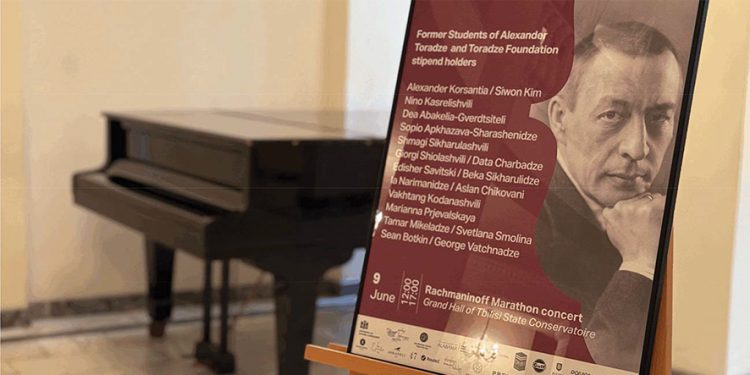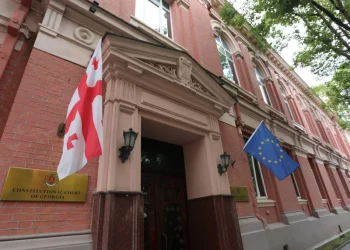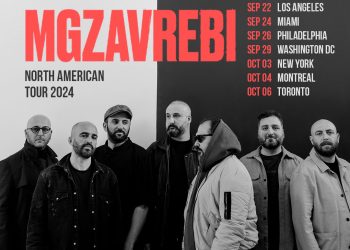The Toradze International Music Festival is being held in Tbilisi for the second time. The program features performances by renowned musicians from the global classical scene, ranging from legendary figures to emerging experimentalists. Notable participants include Gergely Madaras, Paavo Järvi, Christian Blackshaw, Elisabeth Leonskaja, Gabriel Prokofiev, Noemi Gyori, and Matthew Meadows.
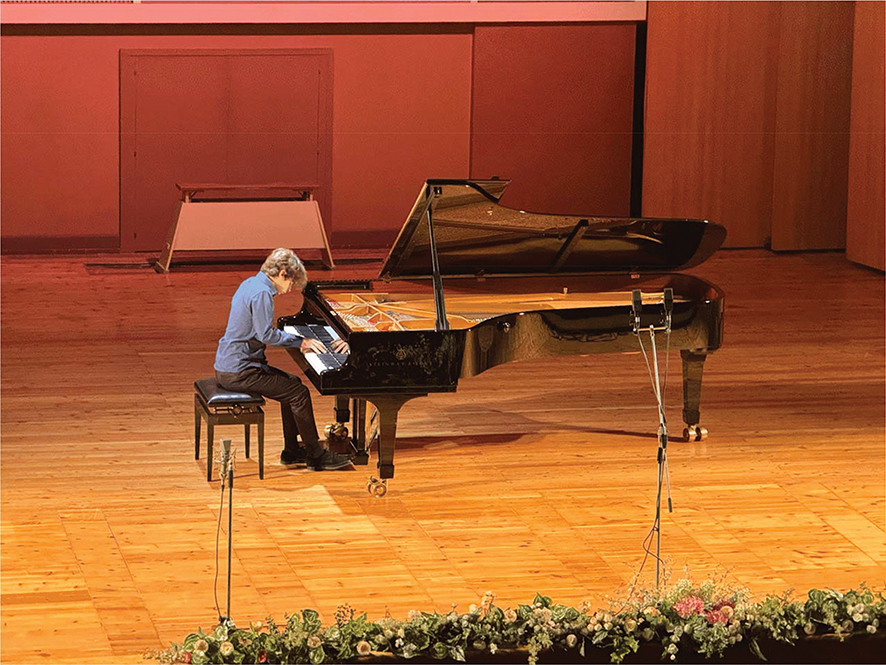
This year, the festival opened with a truly grandiose and meticulously curated event: A 10-hour Rachmaninoff marathon. This all-day musical celebration, taking place from 12:00 to 22:00, highlighted the profound influence and pedagogical legacy of Alexander (Lexo) Toradze. Featuring a stellar lineup of his former students, current Toradze Foundation stipend holders, and a student of one of his notable protégés, Edisher Savitski, the festival underscored Toradze’s enduring impact on the world of classical piano.
Morning Session: Intimate Pieces
The day’s festivities began with Alexander Korsantia, who performed Moment Musicaux Op. 16, No. 5 and No. 6. Korsantia’s strong grasp of musical structure and dynamic contrast set a high bar, reflecting Toradze’s emphasis on both technical mastery and expressive depth. Following him, Siwon Kim presented Four Pieces Op. 3 (Elegie, Melody, Polichinelle, Serenade). Kim’s performance was notable for its lyrical sensitivity and vibrant character, showcasing a nuanced understanding of Rachmaninoff’s diverse styles and emotional range, a clear testament to Toradze’s teaching. Dea Abakelia-Gverdtsiteli then took the stage with Prelude Op. 2 in C-sharp minor, Prelude Op. 23, No. 5, and Kreisler’s Liebesleid (arr. Rachmaninoff). Her technical brilliance and heartfelt expression highlighted Toradze’s holistic approach that merges technique with deep emotional engagement.
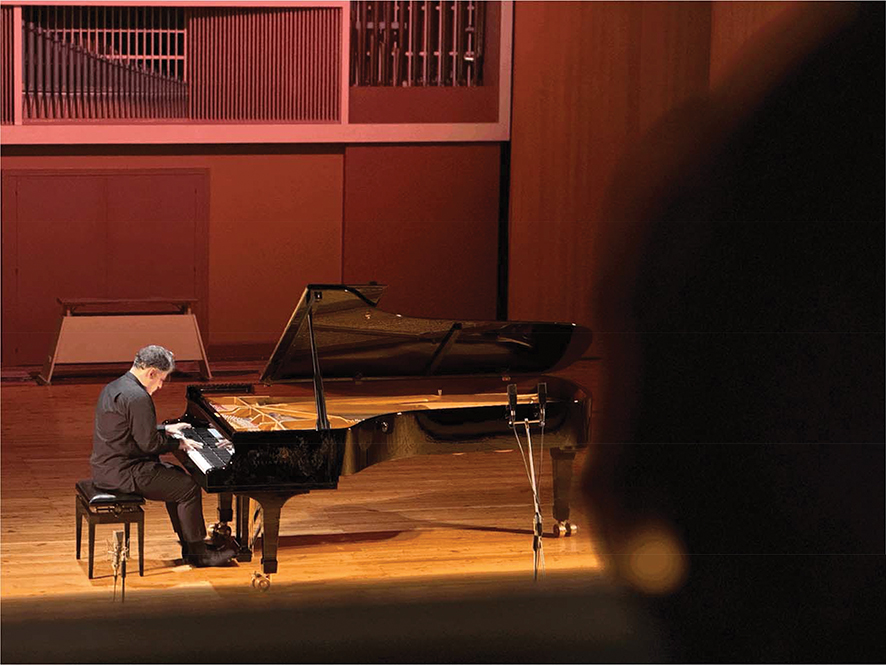
The session continued with Sopio Apkhazava-Sharashenidze, who presented Two Pieces Op. 2 Danse Orientale. The rhythmic precision and stylistic flair were a reflection of the importance placed on stylistic accuracy and expressive individuality. Shmagi Sikharulashvili followed, performing Preludes Op. 32, No. 2, No. 6, No. 13, and Études-Tableaux Op. 39 No. 8. Sikharulashvili’s remarkable technical control and interpretative insight underscored the rigorous training in both technical prowess and artistic expression.
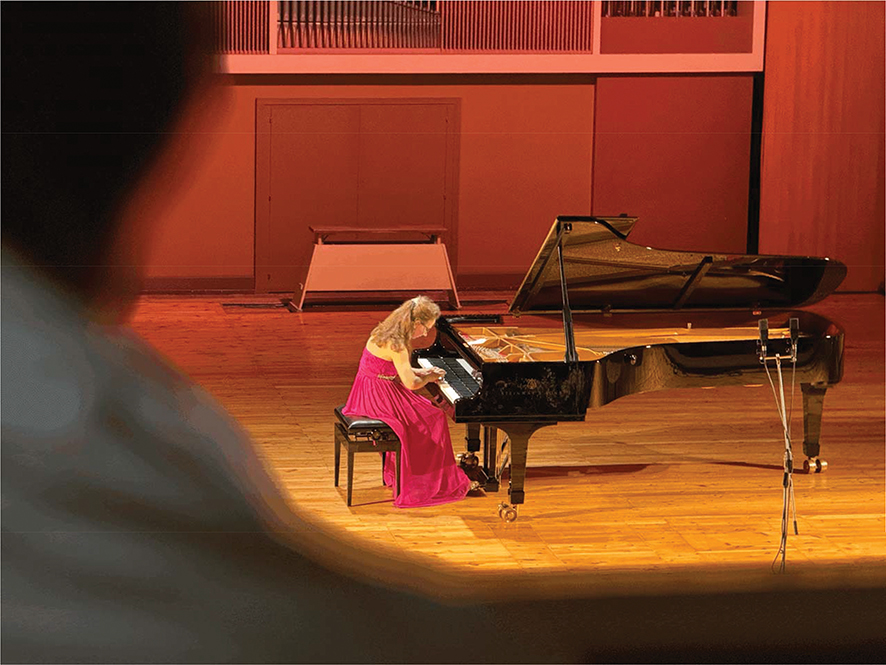
Giorgi Shiolashvili’s rendition of Preludes Op. 32, No. 5, No. 8, and No. 10 showcased clarity in musical form and textural variety, demonstrating the importance of structural understanding and dynamic contrast in interpretation. Closing the morning session, Data Charbadze performed Prelude Op. 32, No. 12, and Moment Musicaux Op. 16, No. 3 and No. 4 with a well-rounded and expressive approach, encapsulating Toradze’s balanced pedagogical style.
Afternoon Session: Rigorous Études and Elegies
The afternoon session commenced with Edisher Savitski, who performed Études-Tableaux Op. 33 No. 1, No. 2, No. 3, and No. 8. Savitski’s technical excellence and interpretative depth highlighted the focus on developing a strong technical foundation combined with profound musical expressiveness. Beka Sikharulidze continued with Études-Tableaux Op. 33 No. 4, No. 5, No. 6, and No. 7, delivering precision and emotional intensity. This performance showcased the balance of technical demands with expressive interpretation. Next, Ia Narimanidze interpreted Elegie Op. 3 No. 1 with lyrical beauty and nuanced phrasing, emphasizing emotional expression and subtlety.
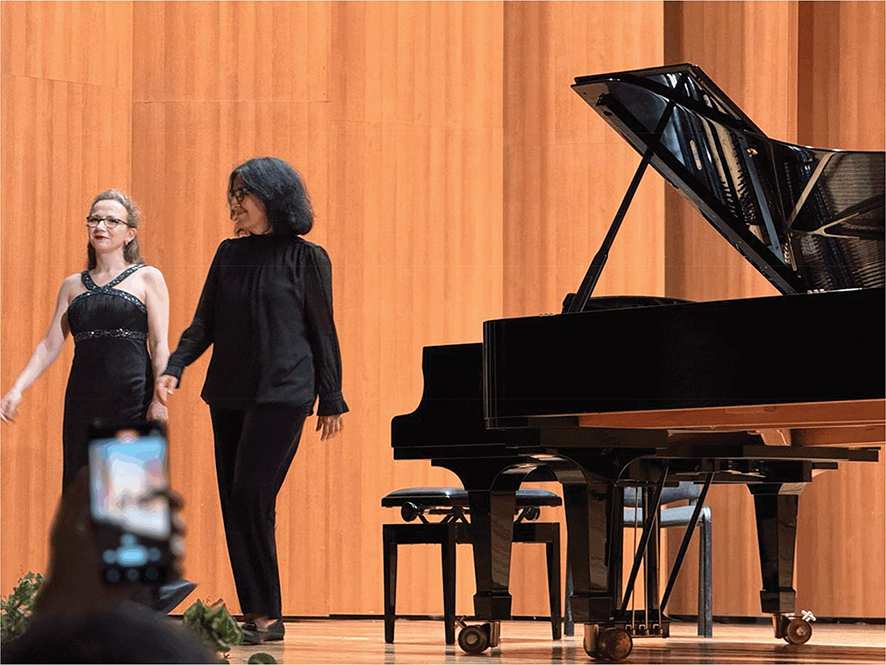
Aslan Chikovani’s performance of Études-Tableaux Op. 39 No. 1, No. 3, No. 4, No. 7, and No. 9 featured powerful dynamics and technical agility, reflecting a rigorous approach to technical excellence and dramatic expression. Vakhtang Kodanashvili played Études-Tableaux Op. 39 No. 2, No. 5, and No. 6 with precision and depth, highlighting the emphasis on technical proficiency and interpretive insight of his Master.
Evening Session: Grand Variations and Sonata No. 1
The evening session began with Marianna Prjevalskaya performing Variations on a Theme of Chopin Op. 22. Her elegance and technical finesse demonstrated a focus on stylistic understanding and nuanced interpretation. Svetlana Smolina followed with Variations on a Theme of Corelli Op. 42, her clarity and expressive depth highlighting the ability to instill a strong sense of musicality and technical control.
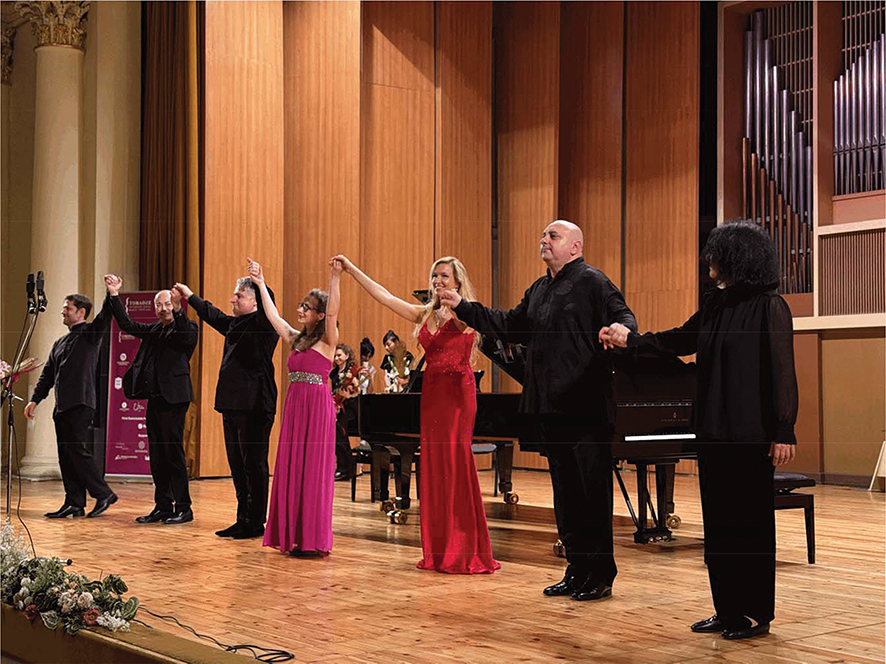
Sean Botkin’s performance of Sonata No. 1, Op. 28 D minor added a dynamic contrast, demonstrating Rachmaninoff’s rich pianistic writing and intricate compositional structure. Botkin’s interpretation highlighted the sonata’s dramatic intensity and lyrical beauty, showcasing Toradze’s influence on the pianist’s virtuosic abilities.
Twilight Session: Collaborative Suites and Magnificent Finale
Marianna Prjevalskaya and Tamar Mikeladze performed Suite No. 1, Op. 5 with seamless coordination and expressive depth, reflecting a focus on ensemble playing and musical dialogue. Svetlana Smolina and Vakhtang Kodanashvili delivered Suite No. 2, Op. 17 with technical precision and interpretative insight, highlighting the emphasis on collaborative musicianship and detailed interpretation.
The grand finale of the 10-hour marathon was a version for piano duo of “Symphonic Dances Op. 45,” performed by George Vatchnadze and Edisher Savitski. This piece, one of Rachmaninoff’s last compositions, encapsulated his late-style complexity and emotive power while the performance condensed the legacy of combining technical mastery with profound musical expression, leaving a lasting impression of Toradze’s pedagogical influence.
Alexander Toradze’s Influence and Pedagogical Legacy
Alexander Toradze, an eminent Georgian pianist and revered pedagogue, has significantly shaped the artistic journeys of numerous pianists through his rigorous and inspiring teaching. Toradze’s educational philosophy emphasizes not only technical mastery but also deep musical understanding and emotional expression. The festival’s opening, featuring a 10-hour Rachmaninoff marathon performed by generations of pianists influenced by Toradze, serves as a testament to his teaching excellence. His personalized approach fostered a nurturing yet challenging environment, allowing each student to flourish in their own right. His legacy is reflected in the varied and accomplished careers of his former students, many of whom have become prominent performers and educators themselves.
By Ivan Nechaev
Editor’s Note: We had a mix-up of photos and will add the correct photos to this article on Monday morning. Apologies to both organizers and participants!

